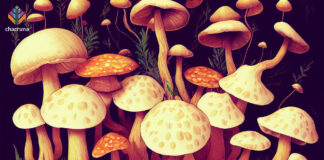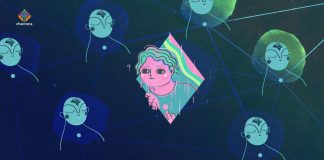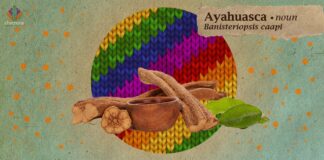Beyond Inclusion: How Non-Binary People Can Transform the Psychedelic Industry
Rowan Woodmass argues that non-binary and genderqueer people are uniquely positioned to transform the psychedelic industry. Identifying gender issues in the psychedelic realm, Woodmass discusses how non-binary people are equipped to reduce harm through inclusion and to both imagine and implement a more intersectional future.
Five Things Mushrooms & Non-Binary People Have in Common
What do mushrooms and non-binary people have in common? Summer Vineyard counts down five points that connect the dots between the two, including invisibility & erasure, societal phobias, and deconstruction of binaries.
Railler les psychédéliques : une critique du dénigrement de la conférence...
On ne cherche des origines pathologiques à l'identité gay que si on part du principe qu'être queer constitue une anomalie plutôt qu'une manifestation naturelle de la diversité humaine.
Jeering Psychedelics: A Critique of Jacques Mabit’s Criticism of Queering Psychedelics
In this essay, Justin Natoli debunks Jacques Mabit’s homophobic and problematic criticism of Chacruna’s Queering Psychedelics conference. Beyond critiquing Mabit’s comments, Natoli gives an informative run through of queerness and the problems that have been historically present in accepting and understanding the queer community and concepts therein.
Old Guard, New Tricks: Reflections on Queering the Psychedelic Space with...
In this article, Amy Bartlett interviews Annie and Michael Mithoefer, who are both psychotherapists that work with MDMA, to talk about queer issues within psychedelic therapy. They discuss topics such as intersectionality, sexuality, gender, diversity, inclusivity, and social justice as it relates to this space in an effort to challenge the heteronormative structural norms that have been in place for decades.
How Ayahuasca Can Help Gay Men Create Better Dance Parties
Gay men’s dance parties are communal rituals that carry the potential for deep healing, both individually and as a collective. However, wounds from the closet create an atmosphere of exclusion that can harm instead of heal. Through Ayahuasca ceremonies, another form of communal ritual, I learned how to craft more fulfilling experiences at these parties.
The Overlap Between Kink/BDSM and Psychedelics
The similarities between Kink/BDSM and psychedelics may not be overtly obvious at first glance, but as Dr. Denise Renye explains here, there is consistent overlap between psychedelics and kinky dynamics between consenting partners. Psychedelics and BDSM play can induce profound healing experiences and nonordinary states of consciousness, which means preparing for these intimate interactions require all parties to prepare for set and setting, and aftercare and integration.
Why Oneness is Not Incompatible with Identity Politics
In this article, we take a closer look at some of the implications of the argument that identity politics are antithetical to psychedelics’ teaching of “oneness.” We outline some of the potential harm in holding oneness as the ultimate psychedelic experience on which all healing depends, hypothesize that oneness may be a privileged and intrinsically heteronormative experience, and show that, even if oneness is indeed the ultimate truth revealed by psychedelics, it is not in fact incompatible with identity politics. To be clear, some people, including queer and trans people, have powerful and healing psychedelic experiences of oneness. We celebrate that. Our hope is that this article will help legitimize other kinds of experiences, encourage research on the LGBTQIAS2+ community and psychedelics, and debunk claims that focusing on identity and equity means one has not understood that “we are all one.”
Psychedelics and the Queer Art of Survival
At the beginning of this article, the author opens up about their traumatic history and how they sought the wisdom of psilocybin mushrooms to catalyze their healing process. Post-psychedelic experience, the author juxtaposes spirituality, mainly Christianity, with their belief of ‘queerness is that ability to survive in the midst of hell’ and calls for queer individuals to embrace entheogens as a sacred Eucharist.
Coming Out in Jamband Communities: A Queer Psychedelic History
Wednesday, August 26th from 12-1:30pm PST
Featuring Steve Silberman in conversation with Jesse Jarnow
REGISTER HERE
The communities of fans that grew up around improvising...














